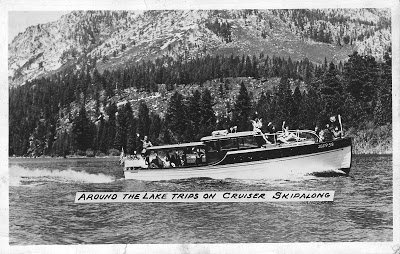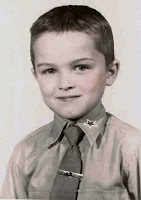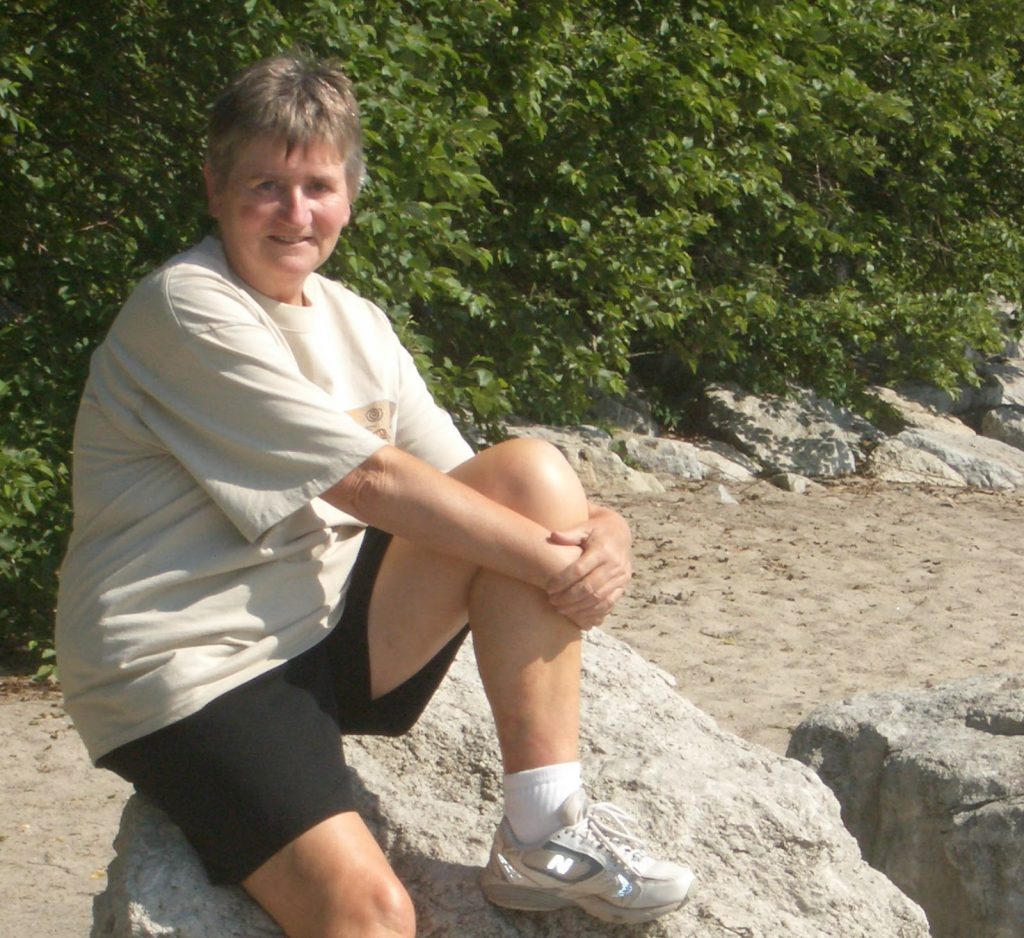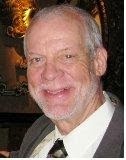Like everyone else on
this planet, the first woman in my life was my mother. Mom was the care giver when I was young, but
she was also the rat-fink of my life.
She would always tell my father of my daily misdeeds and he was the
disciplinarian in the family. During
that time period, discipline consisted of not too gentle spankings, so I
learned to fear both of them. Mom was
also the one who came to Minnesota, while I was living with my grandparents, to
be a bridesmaid for her sister and then did not take me back to California when
she left Minnesota after the wedding. I
think I subconsciously resent her even to this day for leaving me and for being
a rat-fink.
this planet, the first woman in my life was my mother. Mom was the care giver when I was young, but
she was also the rat-fink of my life.
She would always tell my father of my daily misdeeds and he was the
disciplinarian in the family. During
that time period, discipline consisted of not too gentle spankings, so I
learned to fear both of them. Mom was
also the one who came to Minnesota, while I was living with my grandparents, to
be a bridesmaid for her sister and then did not take me back to California when
she left Minnesota after the wedding. I
think I subconsciously resent her even to this day for leaving me and for being
a rat-fink.
The second woman was my
father’s mother. After I was born she
came to live with us for about one year.
I don’t remember that time period much and as I grew up, I did not see
her very often. The next female in my
life was my beloved Bonnie, a black and white collie, who became the best baby
sitter a two-year old toddler could not escape; that is until I learned to take
her with me when I left the yard. Sadly,
she got distemper and passed before her first birthday. I don’t remember if I grieved for her very
much. I only now remember her from old
photographs and the stories my parents told me over time.
father’s mother. After I was born she
came to live with us for about one year.
I don’t remember that time period much and as I grew up, I did not see
her very often. The next female in my
life was my beloved Bonnie, a black and white collie, who became the best baby
sitter a two-year old toddler could not escape; that is until I learned to take
her with me when I left the yard. Sadly,
she got distemper and passed before her first birthday. I don’t remember if I grieved for her very
much. I only now remember her from old
photographs and the stories my parents told me over time.
Next was a girl in my
Kindergarten class at the Hawthorn Christian School in Hawthorn,
California. Her name was Sandra
Flora. She was like a girlfriend to me,
or more precisely, I was a boyfriend to her.
With long curly hair and the full dress that little girls wore at that
time, she looked like a young Shirley Temple.
I carried her Kindergarten school photo in my wallet well into my 40’s
when I finally lost it.
Kindergarten class at the Hawthorn Christian School in Hawthorn,
California. Her name was Sandra
Flora. She was like a girlfriend to me,
or more precisely, I was a boyfriend to her.
With long curly hair and the full dress that little girls wore at that
time, she looked like a young Shirley Temple.
I carried her Kindergarten school photo in my wallet well into my 40’s
when I finally lost it.
The next woman in my
life would be my mother’s mother. I
lived with her and my grandfather for two years on a farm in central Minnesota
from the age of 8 until two-weeks before I turned 10. She was a reasonable surrogate mother but at
9-years of age, I ended up with a mild ‟school boy crush” on my 4th
grade teacher, Mrs. Knoll. She was a
very young beautiful lady and in her second year as a teacher. The crush was mild because she was married so
I knew I had no chance and I was not quite into full blown puberty. My 3rd grade teacher, Mrs.
Sorensen, was a good but matronly teacher and thus of no interest to me.
life would be my mother’s mother. I
lived with her and my grandfather for two years on a farm in central Minnesota
from the age of 8 until two-weeks before I turned 10. She was a reasonable surrogate mother but at
9-years of age, I ended up with a mild ‟school boy crush” on my 4th
grade teacher, Mrs. Knoll. She was a
very young beautiful lady and in her second year as a teacher. The crush was mild because she was married so
I knew I had no chance and I was not quite into full blown puberty. My 3rd grade teacher, Mrs.
Sorensen, was a good but matronly teacher and thus of no interest to me.
Back on the farm, my
aunt Darlene, my mother’s younger and only sister, would visit occasionally
with her husband. When I was 8, I was a
ring-bearer (like Bilbo and Frodo) at her wedding. My younger cousin, Pamela Anderson, was the
flower-girl. There was one other female
on the farm that I had a platonic relationship with, at least on my part. Her name was Peanuts and she was a Guernsey
cow. Her stall was the first one as I
would enter the barn and so she became my favorite, almost like a pet.
aunt Darlene, my mother’s younger and only sister, would visit occasionally
with her husband. When I was 8, I was a
ring-bearer (like Bilbo and Frodo) at her wedding. My younger cousin, Pamela Anderson, was the
flower-girl. There was one other female
on the farm that I had a platonic relationship with, at least on my part. Her name was Peanuts and she was a Guernsey
cow. Her stall was the first one as I
would enter the barn and so she became my favorite, almost like a pet.
One week before I
turned 10, my mother and new step-father came to Minnesota to pick me up and
take me back to California. They also
introduced me to the next female to enter my life, my little baby sister,
Gale. For the next 9 years she and her
twin brother and I had a close family relationship. They were the kids and I was the
babysitter. Not too much personal time
for me, but we did have some amount of fun growing up until I went away to
college and then the military. She still
lives at our ‟home town” of South Lake Tahoe.
turned 10, my mother and new step-father came to Minnesota to pick me up and
take me back to California. They also
introduced me to the next female to enter my life, my little baby sister,
Gale. For the next 9 years she and her
twin brother and I had a close family relationship. They were the kids and I was the
babysitter. Not too much personal time
for me, but we did have some amount of fun growing up until I went away to
college and then the military. She still
lives at our ‟home town” of South Lake Tahoe.
The next female was
never alive in the literal sense but she really was a lady. She was the Skipalong, my step-father’s 39
foot cabin cruiser he used as a tour-boat on Lake Tahoe during 1957 and ’58. I was his deckhand in 1958 and I
really loved the ‟job” and the boat. All
I had was that one summer with her as the next summer, at the beginning of the
season, she sank at a pier while her engine was being overhauled and was sold
for salvage. I still miss her even today
as that summer was perhaps the happiest of my childhood.
never alive in the literal sense but she really was a lady. She was the Skipalong, my step-father’s 39
foot cabin cruiser he used as a tour-boat on Lake Tahoe during 1957 and ’58. I was his deckhand in 1958 and I
really loved the ‟job” and the boat. All
I had was that one summer with her as the next summer, at the beginning of the
season, she sank at a pier while her engine was being overhauled and was sold
for salvage. I still miss her even today
as that summer was perhaps the happiest of my childhood.
She had a colorful career. It is
believed she was built in the 1920’s in Morris Heights, New York by the
Consolidated Shipbuilding Corporation.
She was originally 36 feet long but upon arrival in San Francisco she
was modified to 39 feet long and a ‟lookout cockpit” was added to the bow as
she began service as a rum runner during Prohibition.
In the Fall of 1958,
after that wonderful summer, I developed another school boy crush. This time it was during full blown puberty
and on my unmarried, first year 5th grade teacher, Miss
Herbert. She was beautiful, young, and
had a wonderful personality. I was in
LOVE! Then she got married over
Christmas vacation. I was
devastated. It appeared to me that I
would never get the women I loved, which due to the age differences, is
probably a good thing.
after that wonderful summer, I developed another school boy crush. This time it was during full blown puberty
and on my unmarried, first year 5th grade teacher, Miss
Herbert. She was beautiful, young, and
had a wonderful personality. I was in
LOVE! Then she got married over
Christmas vacation. I was
devastated. It appeared to me that I
would never get the women I loved, which due to the age differences, is
probably a good thing.
The next female arrived
at our house on Red Lake Road, in South Lake Tahoe when I was 12. She was ¾ Oriental Poodle and ¼ Pomeranian—a
little, black, shaggy, and “yippy” lap dog.
She bonded to me the first night in our house and became the first
female I slept with for the next 9-years.
I was monogamous but she was a very prolific bitch. No! I was not the
father of her litters.
at our house on Red Lake Road, in South Lake Tahoe when I was 12. She was ¾ Oriental Poodle and ¼ Pomeranian—a
little, black, shaggy, and “yippy” lap dog.
She bonded to me the first night in our house and became the first
female I slept with for the next 9-years.
I was monogamous but she was a very prolific bitch. No! I was not the
father of her litters.
After I joined the Air
Force, I met my first girlfriend as an adult.
She was the best friend of the woman I would marry 5-years later. During the intervening years, I also met the
woman who taught me about making out and foreplay. Then there was the woman who took my
virginity. Actually, I guess it was a
mutual thing as she did not have to twist my arm to get it.
Force, I met my first girlfriend as an adult.
She was the best friend of the woman I would marry 5-years later. During the intervening years, I also met the
woman who taught me about making out and foreplay. Then there was the woman who took my
virginity. Actually, I guess it was a
mutual thing as she did not have to twist my arm to get it.
Then I married Deborah
and we enjoyed 27-years and 9-months together before she passed from complications
of breast cancer. During those years,
the final women in my life were born to us—our three daughters, one of which
made me a grandfather with her 2-daughters.
and we enjoyed 27-years and 9-months together before she passed from complications
of breast cancer. During those years,
the final women in my life were born to us—our three daughters, one of which
made me a grandfather with her 2-daughters.
So those are the women
and other females in my life. I chose
not to tell about my two female cats, so be thankful for small favors.
and other females in my life. I chose
not to tell about my two female cats, so be thankful for small favors.
© 23 November 2014
About the Author
I was born in June of 1948 in Los Angeles, living first in Lawndale
and then in Redondo Beach. Just prior to
turning 8 years old in 1956, I was sent to live with my grandparents on their
farm in Isanti County, Minnesota for two years during which time my parents
divorced.
and then in Redondo Beach. Just prior to
turning 8 years old in 1956, I was sent to live with my grandparents on their
farm in Isanti County, Minnesota for two years during which time my parents
divorced.
When united with my mother and stepfather two years later
in 1958, I lived first at Emerald Bay and then at South Lake Tahoe, California,
graduating from South Tahoe High School in 1966. After three tours of duty with the Air Force,
I moved to Denver, Colorado where I lived with my wife and four children until
her passing away from complications of breast cancer four days after the 9-11-2001
terrorist attack.
in 1958, I lived first at Emerald Bay and then at South Lake Tahoe, California,
graduating from South Tahoe High School in 1966. After three tours of duty with the Air Force,
I moved to Denver, Colorado where I lived with my wife and four children until
her passing away from complications of breast cancer four days after the 9-11-2001
terrorist attack.
I came out as a gay man in the summer of 2010. I find writing these memories to be
therapeutic.
therapeutic.
My story blog is, TheTahoeBoy.Blogspot.com.



